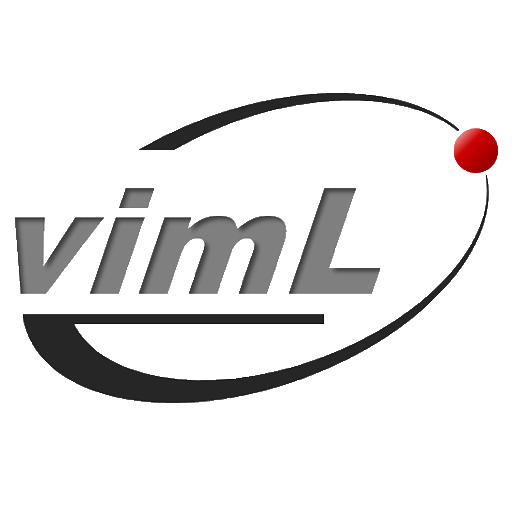這一篇會比較簡短一點,來大概提一下怎麼用 Boost C Libraries 的 Locale(官方文件)這個函式庫,來進行字碼的轉換。Locale 這個函式庫主要是提供 C 地區化(localization)的功能、並提供一些 Unicode 的處理能力;而 Heresy 在這邊只會針對字碼轉換的部分做說明。
不過在使用時要注意的一點是,Locale 這個函式庫是在 1.48.0 才加入的,算是相當新的一個函示庫,所以要使用前必須要先確定自己使用的 Boost 的版本,確認是否在 1.48.0 以上;另外,他也是 Boost 中少數需要建置(build)的函式庫,並且可以搭配 ICU(官網)或 iconv(官網)來使用,有需要的話請參考官方的建置說明。(註 1、註 2)
基本上,Locale 所提供的轉碼功能相當地簡單,官方文件請參考《Character Set Conversions》。
基本上,Locale 所提供的字碼轉換都是函式的形式,而且這些函式都在 boost::locale::conv 這個 namespace 下,如果要使用的,則是要引入 boost/locale/encoding.hpp 這個 header 檔。
而他提供用來轉碼的函式,則包括了:
-
不同字碼間的轉換-between()
這個函式是用來將字串在不同的字碼間進行轉換用的,他的介面是:
string between( string const &text,
string const &to_encoding,
string const &from_encoding,
method_type how=default_method)他基本本上只能針對 string 做處理,不支援 wstring。
使用上相當簡單,第一個參數 text 就是要進行編碼轉換的字串,第二個參數 to_encoding 則是要轉換成什麼編碼,第三個參數 from_encoding 則是描述 text 是用哪種編碼(註 3)。
而最後一個參數 how 則是 Locale 的一個列舉型別,代表在轉換失敗的時候,要做什麼處理;基本上只有兩個選項,skip 和 stop,預設會是 skip,也就是無視無法轉換的字元、其他繼續處理。
下面就次一個簡單的例子,他會把 source 這個字串從 BIG5 轉換到 UTF-8:
string source = "....";
string s = boost::locale::conv::between( source, "UTF-8", "BIG5" ); -
轉換到 UTF-to_utf()
這個函式是將特定編碼的 string,轉換成 UTF 字串用的,它的介面基本上是:
template<typename CharType>
basic_string<CharType> to_utf( string const &text,
string const &charset,
method_type how )他除了可以輸出 string 之外,也可以支援輸出成 wstring。像下面的例子,就是把 sSource 這個 BIG-5 編碼的字串,依序轉換成 wstring 和 string 的字串。
string sSource = "...";
wstring ws = boost::locale::conv::to_utf<wchar_t>( sSource, "BIG5" );
string ss = boost::locale::conv::to_utf<char>( sSource, "BIG5" ); -
從 UTF 轉成其他編碼-from_utf()
這個函式和上面介紹的 to_utf() 相反,他是把 UTF 字串(string 或 wstring)、轉換為特定編碼的字串用的。它的介面是:
template<typename CharType>
string from_utf( basic_string<CharType> const &text,
string const &charset,
method_type how )他可以轉換 string 或 wstring 的字串,但是輸出一定是 string。
下面的例子,就是把 sSource 和 wSource 這兩個 UTF 字串,都轉換成 BIG-5 的 string 字串。
string sSource = "...";
wstring wSource = L"...";
string ss1 = boost::locale::conv::from_utf( wSource, "BIG5" );
string ss2 = boost::locale::conv::from_utf( sSource, "BIG5" ); -
Unicode 之間的轉換-utf_to_utf()
這個函式的目的,是在 UTF 的 string 字串和 wstring 字串之間做轉換;他的介面如下:
template<typename CharOut,typename CharIn>
basic_string<CharOut> utf_to_utf( basic_string<CharIn> const &str,
method_type how )下面的例子,就是把型別是 string 的 sSource 轉換成 wstring、並把型別是 wstring 的 wSource 轉換成 string 了~
string sSource = "...";
wstring wSource = L"...";
wstring wStr = boost::locale::conv::utf_to_utf<wchar_t>( sSource );
string sStr = boost::locale::conv::utf_to_utf<char>( wSource );
這篇就寫到這裡了。基本上,Locale 所提供的字碼轉換的功能,在 Heresy 來看算是相當簡單好用的~至少和直接用 iconv 比起來,真的簡單不少…對於有需要在程式中進行字碼轉換的人來說,Heresy 是覺得可以試試看用 Boost 的 Locale 這個函式庫來做做看啦~
而實際上,Locale 還有許多其他的功能,但是因為 Heresy 還用不太到,所以暫時就不研究了。
不過另外 Heresy 覺得可能比較實用的,是他的《Messages Formatting (Translation) 》的部分~或許等有需要的時候,會來看看這一塊吧。
附註:
-
在 Windows 平台上,應該是可以不搭配 ICU 和 iconv 來使用的;但是在 POSIX 平台上,則似乎一定要有 ICU 或 iconv 其中一個。
-
Heresy 有試著想在 Windows 平台上整合 ICU,不過感覺好像不是很成功…
不過一個經驗是,似乎不能直接下載 ICU 的 binary 來作為 Boost 建置時的 ICU 路徑,而是需要下載 source code 來自己建置 ICU 才可以。但是雖然 Heresy 成功地讓 Boost 抓到 ICU 了,但是在試著轉碼的時候,他似乎還是去用 Windows 內建的 codepage、沒去用 ICU 的… -
編碼基本上是直接以字串來做輸入,例如中文就是「BIG5」、Unicode 則是使用「UTF-8」; 另外也可以使用 std::locale(參考)來作為指定編碼的參數。
至於有支援那些編碼,則是要看是使用哪種字碼轉換的模組,例如有使用 iconv 和 ICU 的話,就是看 iconv 和 ICU 有支援什麼了~而在 Windows MSVC 環境下,如果都沒用的話,Boost 會使用 Windows 內建的 code page 來做處理,列表可以參考 Boost 目錄下的 \libs\locale\src\encoding\wconv_codepage.ipp 這個檔案裡的 all_windows_encodings 這個陣列。 -
上述 Locale 所提供的轉換函式,都可以改用 char* 或 wchar_t* 作為輸入的字串。
-
FreeType 的 ft_encoding_unicode 可以使用 wsting 的 UTF 字串。
-
要在 standrad IO 輸出 wstring 這轉寬字元字串,不能使用 cout,而是要使用 wcout;而如果要輸出中文字串的話,則是需要透過 ostream 的 imbue() 這個函式,來做區域的設定。下面是一個例子:
wstring wSource = L"中文";
wcout.imbue( std::locale( "cht" ) );
wcout << wSource << endl;
